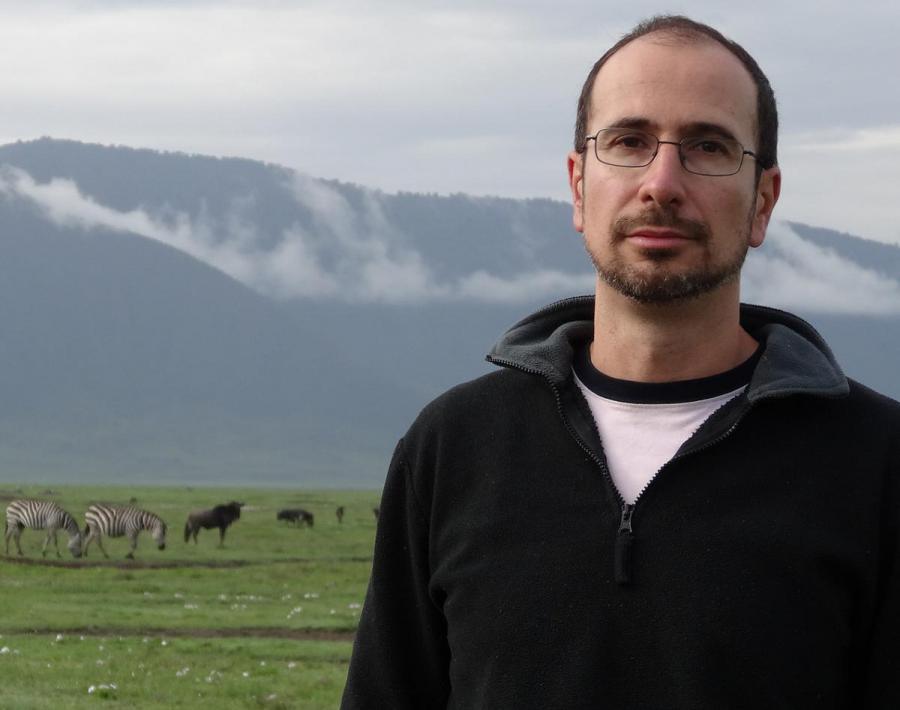Dr. Paolo D’Odorico has always been curious about how the environment is changing, and what drivers determine those changes. His background in hydrology has guided his interest in arid regions—i.e., areas in which the variability of water quantity and quality have critical implications for ecosystem resilience.
At some point, Paolo says, he began to realize that studies on ecohydrology and on processes of desertification completely ignored the role of humans.

“Often, environmental scientists were looking at natural ecosystems as if humans were simply not a part of them,” Paolo explains, “but you can’t fully understand hydrological systems without also understanding how humans are interacting with and impacting them.”
Paolo arrived at his current research by following a series of systematic breadcrumbs. When he first began looking at how humans use water, he soon realized that horticulture is a major player. Investigating how water is used for food production led him to trade networks, as many areas that are in conditions of chronic water deficit turn to imports from other regions to satisfy local food demand. Such imports, Paolo says, are associated with a virtual transfer of the water used to produce the traded commodities. In order words, when a country exports oranges or avocados, it also exports the water used to grow that fruit.
Further, globalization of the food trade can trigger socio-economic impacts felt ‘round the globe. Regions become increasingly dependent on each other. Shocks or policy changes in one country can affect the food and water security, which is often limited by reliance on an uncertain virtual water market, of another country thousands of miles away. In an attempt to circumvent these vulnerabilities, some investors are securing direct access to food and water resources through large-scale land acquisitions, mostly in the developing world.
These large-scale land acquisitions have led Paolo to question their implications for the resilience of the local environment and communities. He explains that the disconnect between consumers and the resources they rely on threatens the ethic of environmental stewardship, because most people are less sensitive to the environmental impacts of choices that do not affect their immediate surroundings.
“One of the troubling aspects of this phenomenon,” he adds, “is the loss of control of the land by the local populations, and the fact that the land is turned into a fungible commodity instead of being treated as the foundation of a society’s livelihood.”
It’s a far cry from his doctoral research in hydraulic engineering—and yet, explicably and explicitly, it’s all connected.
This year, Paolo joins SESYNC as a visiting scholar to examine how escalating demand for food, fibers, and biofuels by a growing and increasingly affluent global population is impacting the planet’s limited land and water resources. He will spend much of his time at SESYNC on two interrelated SESYNC efforts:
- An independent sabbatical project that investigates the impact of large-scale land acquisitions on local communities and on the local environment, and
- A team synthesis project (co-led with Dr. David Seekell of Umeå University) that evaluates how the interconnection of food production and trade systems affects different communities’ access to food.
Additionally, Paolo will continue his collaboration with and mentorship of Dr. Jampel Dell’Angelo, a SESYNC postdoctoral fellow analyzing the institutional drivers and governance conditions of virtual freshwater appropriation associated with large-scale land acquisitions.
Paolo can be reached via email at: paolo@virginia.edu
About SESYNC
The National Socio-Environmental Synthesis Center (SESYNC), funded through an award to the University of Maryland from the National Science Foundation, is a research center dedicated to understanding complex problems at the intersection of human and ecological systems.
The Center provides supported Sabbatical Fellows and Short-Term Visitors with intensive research and engagement opportunities at our Annapolis Center.